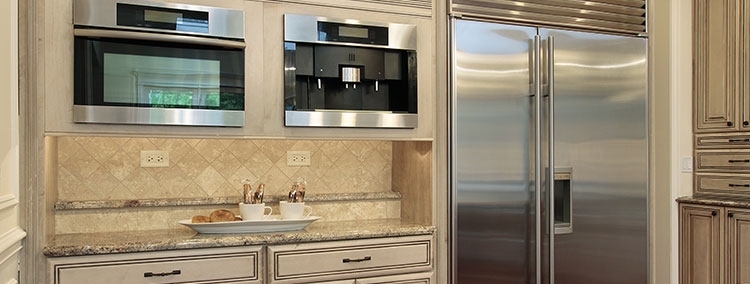
Most homeowners with stainless steel door fridges have little magnets on their refrigerators meant to decorate the fridge or pass a message.
They bring convenience but is it ok to put magnets on a refrigerator? One popular myth is that the magnets will affect the functioning of the refrigerator, but is this true?
According to refrigerator repair professionals, the magnets used to attach photos or notes on the fridge don’t have a lot of force or power to damage the refrigerator, so it’s okay to have them on your appliance.
While this is the case, you can harm your appliance when you mishandle the magnets. For example, if you are too rough when attaching or removing the magnets from the refrigerator, there is the risk of scratching the refrigerator surface.
Some women have long nails that can scratch the refrigerator surface as they are placing and removing the magnets.
If you want to retain the new look of the fridge, you should avoid using regular magnets. Instead, use plastic or vinyl coated magnets that would scratch the surface.
If you can’t find these magnets, use plastic suction cups with hooks in them and use them to hold up the notes, photos, or anything else that you might want to display on your fridge.
Other refrigerator myths
Besides the myth that magnets are harmful to the fridge, there are plenty of others you should be aware of. They include:
You don’t need a thermometer if the dial is working
While the dial comes in handy at helping you set the temperature in the fridge, it doesn’t mean that the figures shown in the dial are the real temperature in the refrigerator.
Plenty of factors can affect the internal temperature of your appliance, and the only sure-fire way to know the exact temperature inside is to use a thermometer. The ideal cool temperature inside the fridge is 3 and 4 degrees Celsius.
You can place anything anywhere in the refrigerator
If you have been researching about refrigerators, you know that you should place certain items in specific areas of the fridge. For example, you should place the meat and other highly perishable items in the freezer.
The reason for this is because the temperature in the fridge isn’t equal throughout. Certain areas, such as the fridge doors, are warmer, and you should place juice, water, beer, and other items that can withstand high temperatures here.
For your items not to go bad, you need to store them in the right compartments. If you aren’t sure how to go about it, here is a guide to help you out.
You can lock the cold air inside even with the power out
You must have heard that you don’t have to worry even if the power goes out, as the food will be safe as long as you don’t open the fridge and freezer doors. Well, this isn’t true.
If the power is out for less than four hours, most of the food will be okay, but even then, it’s safe to toss the dairy, meat, and leftovers as bacteria might have already started growing on them.
Veggies, bread, hard cheese, and fresh fruits should be alright.
You can keep leftovers in the fridge for as long as you want
The refrigerator is meant to extend the lifespan of the food you put there, but not keep it fresh forever. A good rule of thumb is to keep the leftovers in the fridge for a maximum of four days. If you can’t remember the last time you made the food or had it delivered, it’s time to toss it.
The produce bin doesn’t need cleaning.
Since the produce bin only carries fruits and vegetables, some people believe that it doesn’t get dirty and should not be cleaned.
Appliance repair Springfield professionals advise against it. When you store fresh fruits and vegetables, after some time, you are bound to have some bacteria growing there, and there is the risk of cross-contamination in your refrigerator.
To avoid this, make it a habit to clean the produce bins before loading a fresh batch of fruits or vegetables.
The post Is It OK To Put Magnets On A Refrigerator? first appeared on HVAC Repair, appliance repair. The post appeared first on Express Appliance Repair